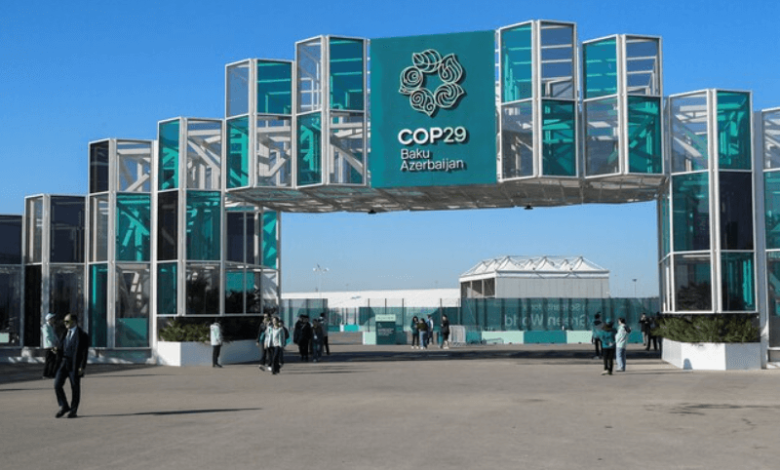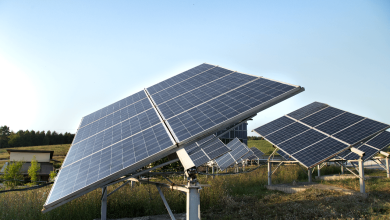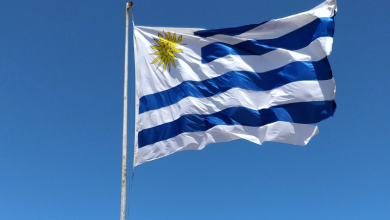Understanding 7 COP29 jargon as the climate summit commences in Baku

Here’s a list of important terminology in the climate change discussion,
Carbon market:
These markets are essentially trading platforms where carbon credits are sold and bought. They allow countries or businesses to earn carbon credits for reducing greenhouse gas emissions in excess of their targets. Carbon credits can be sold to the highest bidder in exchange for cash. Buyers of carbon credits can claim emission reductions as their own and apply them to satisfy their reduction targets.
One tradable carbon credit equals one tonne of CO2 or the equivalent amount of another greenhouse gas reduced, sequestered or avoided. Once a credit has been used to cut emissions, it becomes a substitution and cannot be traded.
NCQG:
The New Collective Quantified Goal (NCQG) is the new amount that wealthy nations must raise annually beginning in 2025 to fund climate action in developing countries. It must be greater than the $100 billion that industrialized countries jointly promised to raise annually beginning in 2020 but have failed to deliver. The NCQG is expected to be finalized during COP29.
$100 billion pledge/climate financing target:
The only functioning climate financing commitment from the wealthy world to the poor is the iconic £100 billion pledge which dates back more than a decade. At the 2009 Copenhagen Climate Conference, developing nations were promised at least $100 billion in climate money each year from public and private sector sources beginning in 2020 to help them reduce greenhouse gas emissions and manage with the effects of extreme weather. However, that pledge was not kept. At Cop26, it was revealed that approximately $80 billion was provided in 2019.
There are also significant distortions in how the money has been distributed, much of the finance has gone to mitigation efforts in middle-income countries that have relatively little difficulty attracting private sector investment and little has gone to adaptation and resilience. Some finance has taken the form of loans which add to countries’ debt piles and Africa and the least developed countries have received far less than they require.
Nationally Determined Contributions (NDCs):
According to the Paris Agreement, every government must create a plan outlining its efforts to cut national emissions and prepare for the effects of climate change. These pledges are referred to as NDCs. Subsequent NDCs are expected to be larger than their prior works and they are submitted every five years.
Carbon offsetting:
If a tonne of CO2 can be absorbed from the atmosphere in one region of the world, it should balance out a tonne of the gas emitted in another. This is because CO2 has the same effect on the climate regardless of where it is emitted and what the source is. By investing in projects that reduce or store carbon, such as planting trees and preserving forests, businesses, governments and individuals can theoretically neutralize the impact of some of their emissions. However, carbon credits are also given for projects that reduce fossil fuels in other ways, like wind farms, solar cookstoves or improved farming practices. The practice has generated controversy and is called carbon offsetting.
Article 6 of Paris agreement:
The agreement which was adopted at COP21 in Paris in 2015 aims to limit the rise in the average world temperature. For the first time ever, it commits 195 countries legally to fight climate change and prepare for its impacts, making it a historic agreement.
Article 6 of the Paris Agreement which permits carbon trading among members will be discussed by nations at Cop29. This could be one of the sources of innovative finance being considered for the NCQG.
UAE Consensus:
The historic commitment to “transition away” from fossil fuels was made at Cop28 in Dubai in 2023. The resolution indicates the necessity of a gradual phase-out of fossil fuels and was the first time that all nations had made such a commitment despite the fact that it may appear to be a weak formulation with no timeframe for completion. This commitment may be criticized at Cop29 because several nations such as Saudi Arabia and other members of the “like-minded developing countries” grouping, have since tried to remove themselves from it.



